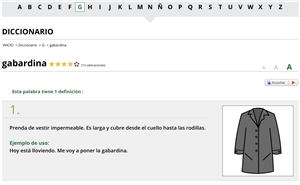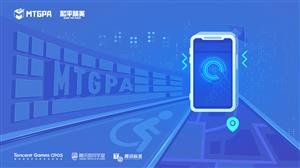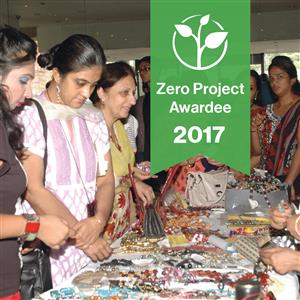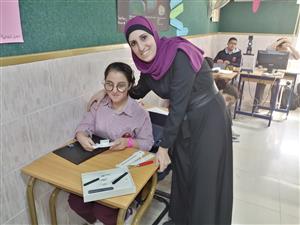Search Results
Search
Filter results
Advanced Filters
Your search returned 288 Solutions
-

Free online Spanish dictionary written according to easy reading guidelines
Diccionario Fácil is a free online Spanish dictionary service developed by Plena Inclusion Madrid, an NGO. It provides definitions according to the Easy Reading Guidelines, validated by people with intellectual disabilities, and also providing employment opportunities for them.
Plena Inclusion Madrid, Diccionario Fácil – Easy Dictionary, Spain -
Supporting schools to establish assistive technology labs for blind students
inABLE supports specialized schools to teach students who are blind in assistive and digital technologies. The NGO not only equips the necessary infrastructure, but also provides instructors and the training for teachers. For the students, inABLE has designed an assistive technology computer curriculum.
inABLE, inABLE Computer Labs, Kenya -
The right to an inclusive apprenticeship
On the basis of a pilot apprenticeship model introduced by a parent association, the Austrian Vocational Training Act of 1969 was amended. In order to make the vocational training system more accessible to many young people and to enhance their labour market integration, prolonged or partial qualification was introduced.
Austrian Ministry of Social Affairs, Health, Care and Consumer Protection, The right to an inclusive apprenticeship, Austria -
Blind women as experts in detecting breast cancer
Discovering Hands uses the superior tactile perception of blind and visually impaired persons to improve palpatory diagnosis in the early detection of breast cancer. Discovering Hands trains blind and visually impaired women to become "Medizinisch Taktile Tastuntersucherin" (Clinical Breast Examiners).
Discovering Hands Germany, Blind women as experts in detecting breast cancer, Germany -

Haptic technology to improve mobile app accessibility
Tencent Holdings is a technology and entertainment company from China that has developed ‘MTGPA Haptics’, a technology that transmits vibro-tactile signals to its users and can be used for notifications or as an orientation aid. By 2022, MTGPA Haptics had been installed in over 240 million smart phones.
TENCENT Technology Co,. Ltd., MTGPA Haptics, China -
Preparing people with psychosocial and mental disabilities to live in their own homes
Residents in one of the "Preparation for Independent Living Centres" are provided with personalised professional support, counselling, and training to prepare them for living independently. From 2012 to 2018, 50 people had received support services and 16 had successfully moved on to their own independent lives and accommodations.
Pro ACT Suport Association, Romania -
The 'Accessibility Guide' illustrates low or no-cost solutions for companies to allow persons with disabilities accessibility and employment. It creates inclusive employment policies and promotes inclusive businesses.
The guide offers low to no-cost solutions that give persons with disabilities barrier-free access to the workplace. To generate effective and affordable solutions, employers are trained to interact with the surrounding community and with the persons with disabilities to define and build the accessibility solutions together.
Trust for the Americas, Collected ideas for access to the workplace, Mexico -
Labour integration in rural areas
The Siro Group is one of the largest industrial groups in the food sector in Spain. It has implemented an Integration Policy for people with disabilities in all workplaces that exceeds the legal framework. Specifically, it has 16 factories located in rural areas with 3,724 employees. 13% of the workforce are persons with disabilities.
Cerealto Siro Foods, Labour integration in rural areas, Spain -

Jewellery production – creating jobs for persons with intellectual disabilities
Jhankar is an NGO that runs a costume jewellery business where the products are designed and produced by people with intellectual disabilities. Jhankar provides skills development opportunities for people with intellectual disabilities and transforms them into entrepreneurs who become socially and economically integrated in their communities.
Jhankar, India -

Inclusive schools for students who are blind or visually impaired
The Arab Episcopal School in Irbid is an inclusive school with kindergarten for children with and without visual impairments and of different religions. In 2018 the school had 40 blind or visually impaired school children. Five of the teachers are blind and also support the children in their daily life.
Arab Episcopal School Irbid, Inclusive Education for visually impaired children, Jordan